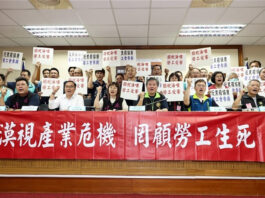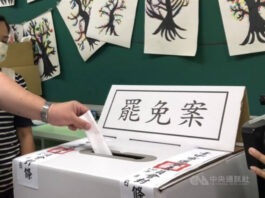- The Democratic Progressive Party (DPP) has openly endorsed and mobilized resources behind recall initiatives aimed at district-based Kuomintang (KMT) lawmakers, marking an unusually aggressive use of recall mechanics in Taiwanese politics.
- The targeted recalls—now numbering around 30–34 cases—seek to overturn the slim opposition majority and reassert legislative control.
Political Context
- Tensions escalated after the KMT-led legislative majority imposed drastic budget cuts on key government agencies—including defense and foreign affairs—provoking backlash from DPP-aligned civic groups.
- With 51 seats, the DPP lacks sufficient votes to override opposition control. The recalls present a pathway to regain legislative power without waiting for the next general election.
DPP Involvement or Grassroots Movement?
- Though the DPP supports the recalls—providing billboards, volunteer leverage, and media visibility—they assert the campaigns are rooted in organic civic movements, not party orchestration.
- Media analysis generally affirms the movement’s grassroots origins: small groups independently organized petition efforts, though with DPP logistical support, particularly from caucus whip Ker Chien-ming.
The KMT’s Counter-Offensive
- In response, the KMT initiated recall petitions against DPP legislators, but none has passed the second-stage threshold of 10% voter signatures.
- Investigations into forged signatures have led to legal action: over 5,200 fabricated forms were submitted in Taipei to recall two DPP lawmakers, leading to indictments and detention of senior KMT staffers.
Potential Legislative Rebalance
- The KMT currently holds a slim 54-seat coalition (KMT + TPP + allied independents); the DPP needs to flip at least 6 seats to form a working majority.
- If successful, the DPP could undo KMT-led budget freezes, pass defense and foreign policy legislation, and approve arms procurement packages essential to national security.
Democracy vs. Destabilization?
- Supporters frame the recalls as a democratic remedy against obstructionism.
- Critics fear they risk turning recall tools into majoritarian weapons, undermining minority representation and political stability.
- Beijing has portrayed the movement as authoritarian suppression, though local observers point out there’s no evidence of direct party control .
Next Steps
- The Central Election Commission (CEC) will finish verifying petitions by June 20, and once second-stage quotas (10%) are met, public referendums must be held within 20–60 days.
- Recall votes for up to 26 KMT lawmakers may occur between July 10 and August 19.
🔍 FAQs
Why are so many recalls targeting KMT lawmakers now?
The movement stems from public dissatisfaction—led by civic groups and aided by the DPP—with the KMT-led legislature’s harsh budget cuts and perceived obstructive tactics against key national policies. This mass recall is seen as a corrective democratic action.
Are these recall campaigns grassroots or DPP-driven?
They began from local civic dissatisfaction, not direct party orders. However, the DPP has provided strategic support—like organizing rallies and giving logistical resources—while maintaining that the drive remains predominantly citizen-led.
What’s required to trigger a recall vote?
Four steps:
First-stage: 1% signatures of eligible district voters.
Second-stage: 10% within a set time.
Review by CEC.
Final public referendum where ≥25% turnout is needed, with a majority vote consenting to the recall.
How does this affect Taiwan’s legislature?
If the DPP flips six or more seats, it could regain legislative majority, allowing it to reverse KMT blockades, pass security budgets, approve defense procurements, and restore constitutional court functionality.
What are the democracy concerns?
Critics warn that weaponizing recalls could erode democratic norms, reduce minority rights, and invite political instability—especially when fueled by partisan tensions.



